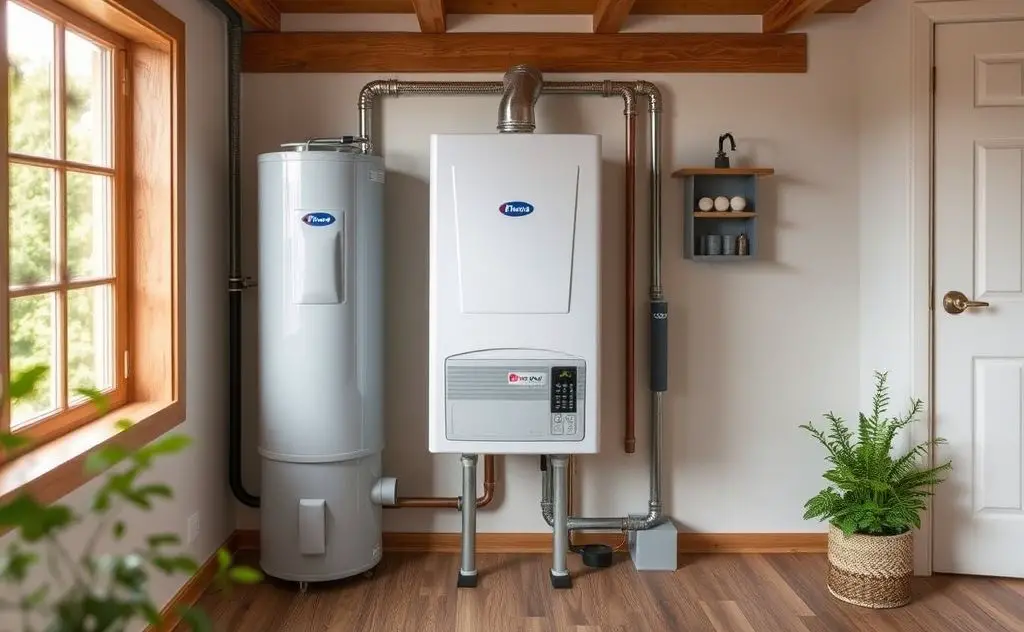Heat pump water heaters are generally reliable, offering efficient performance and longevity, but proper installation and maintenance are crucial for optimal operation.
Heat pump water heaters are gaining popularity as energy-efficient alternatives to traditional models. But are they reliable enough for your home? The short answer is yes – when installed and maintained properly, these systems offer dependable hot water while slashing energy costs. Let’s dive deeper into their reliability and performance.

How Heat Pump Water Heaters Work
Unlike conventional water heaters that generate heat directly, heat pump models transfer existing heat from the surrounding air into your water tank. This process makes them 2-3 times more energy efficient than standard electric resistance water heaters. The technology is similar to how refrigerators work, but in reverse.
Key Components That Ensure Reliability
- Compressor – The heart of the system, designed for 10-15 years of operation
- Refrigerant coils – Durable materials withstand constant temperature changes
- Storage tank – High-quality insulation maintains water temperature
- Smart controls – Advanced diagnostics prevent system failures
Proven Reliability Factors
Longer Lifespan Than Conventional Heaters
While traditional water heaters last 8-12 years, heat pump models typically operate efficiently for 10-15 years. Their durable components and lower operating temperatures contribute to this extended lifespan.
Consistent Performance in Warm Climates
These systems work best in areas where temperatures remain above 40°F year-round. In subtropical climates like the American South, they provide reliable hot water with minimal maintenance.
Built-in Safety Features
With no combustion or high-temperature heating elements, heat pump water heaters eliminate risks of gas leaks, carbon monoxide poisoning, or scalding accidents common with traditional units.
Potential Reliability Concerns
Cold Weather Performance
In temperatures below 40°F, efficiency drops significantly. Some models include backup electric elements to maintain performance during cold snaps.
Space Requirements
These units need at least 1,000 cubic feet of air space to operate efficiently. Homes with limited space may experience reduced performance.
Maintenance Needs
Annual maintenance (filter cleaning, coil inspection) is crucial for reliable operation. Neglect can lead to premature failure.
Real-World Reliability Data
| Metric | Heat Pump Water Heater | Conventional Electric |
|---|---|---|
| Average Lifespan | 10-15 years | 8-12 years |
| Annual Failure Rate | 2-3% | 4-5% |
| Energy Cost Savings | 50-60% | N/A |
According to U.S. Department of Energy studies, properly maintained heat pump water heaters demonstrate superior reliability and efficiency compared to conventional models.
Maximizing Your Heat Pump Water Heater’s Reliability
Proper Installation
Professional installation in an appropriate location (unfinished basement, garage) ensures optimal performance. Incorrect installation accounts for most early failures.
Regular Maintenance
- Clean air filters every 3 months
- Inspect anode rod annually
- Check refrigerant levels every 2 years
- Drain and flush tank annually
Smart Usage Practices
Setting the thermostat to 120°F (49°C) provides sufficient hot water while maximizing efficiency and component lifespan. According to American Home Shield, this temperature also prevents mineral buildup that can reduce reliability.
When to Consider Alternatives
While heat pump water heaters are generally reliable, traditional models may be better suited for:
- Homes in consistently cold climates
- Small spaces without adequate air volume
- Households with very high hot water demand
For most homeowners in moderate climates, modern heat pump water heaters offer reliable, energy-efficient hot water with proper installation and maintenance.
